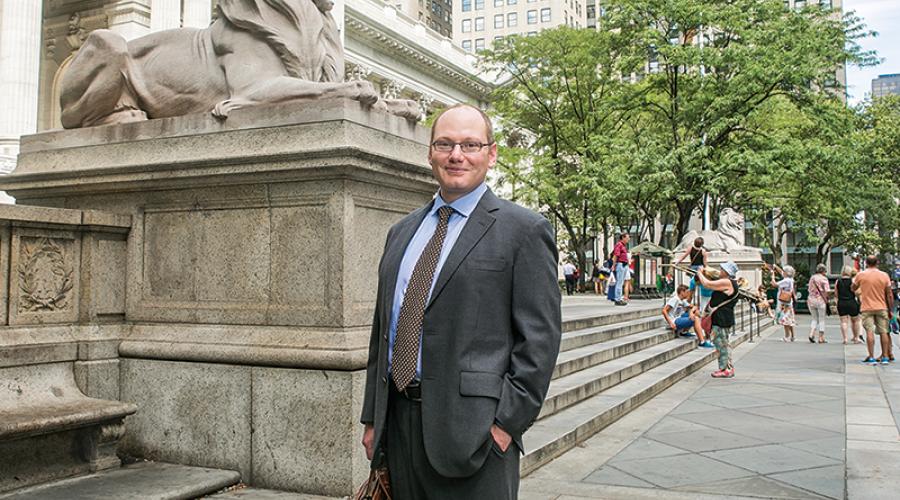
New York City Roles
What does your new role for ILR in New York City entail?
The Institute for Workplace Studies was founded in 1999 by Professor Samuel Bacharach to bring Ithaca’s academic voice to New York City. I will be building on this tradition through a new series of topical public forums and faculty research projects on the “Future of Work,” as well as overseeing our New York City-based master’s degree program.
Why the “Future of Work?"
Everywhere we look, there is both hope and fear surrounding the “tech economy.” The debates around Uber, for instance, are not about whether the app is good (it is), but what it means for the American worker (we don’t know). In the best tradition of ILR, we are bringing together business and labor leaders for critical conversations on what they think work will look like.
Is this a new direction for ILR?
I like to think it is the same mission that we have always had. When the ILR School began, the U.S. was emerging from the Great Depression and war. Americans were at a crossroads in how they wanted capitalism to develop: would our work lives return to the uncertainty and antagonism of the 1930s, or would we chart a new path for industrial labor relations in America that reflected our democratic values? Today, we are at a similar crossroads; we are confronting a new workplace, only this time it is not industrial, but internet labor relations.
Why is a historian overseeing a program on the future?
I backed into this area through my current book project, tentatively called Temp, which is a history of the rise of the flexible workplace. The book shows how today’s “gig economy” is the outgrowth of corporate changes many decades in the making. Last year, I had a fellowship at Stanford where I interviewed business and labor leaders in the tech industry and became fascinated by questions surrounding work, business and technical change. A historian became a futurist.
What does the ILR Master of Professional Studies program in New York look like?
It is intended for mid-career, working professionals about to make the leap from an area of technical expertise, such as medicine or finance, into management. We give them the 360-degree understanding of how organizations work effectively — in the way that only ILR faculty can. The program runs on weekends to make it work with a full-time job.
Speaking of weekends, what’s a perfect weekend look like for you?
My wife and I are both huge fans of early 1930s pre-code film and will probably just spend the weekend at Film Forum, or maybe get lost in the MET — that is, after I finish my book. Until then, I will just be at my desk writing history, which for me is also a perfect weekend.


